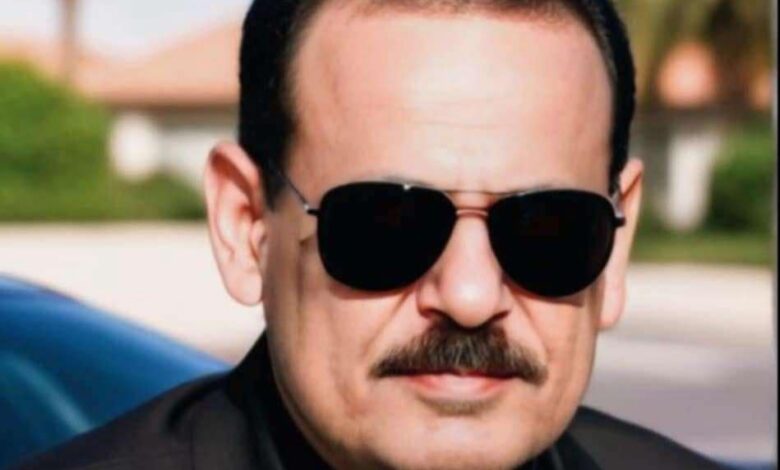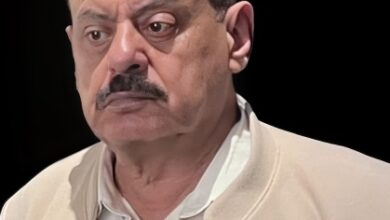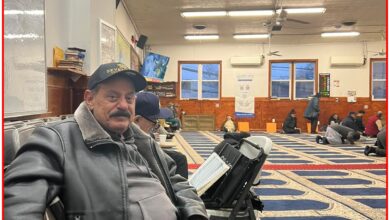Pain and Questions

Yemenat
Ahmed Saif Hashed
As I mentioned earlier, some of the questions I directed to my mother were simple, yet they opened the door to profound matters. They were straightforward and spontaneous, and answering them might seem easy, as they often involved ready-made and common responses. However, when questions multiplied, we found ourselves facing the complex simplicity of them, and for some, we might not find answers at all, or the answers could become elusive and difficult.
I might accept the responses that seem ready-made, which may deceive me to some degree, or I might feel a twinge of doubt about them. Yet sometimes, they lead to further questions, and my acceptance is often only temporary. My journey with these queries oscillates between certainty and doubt, and at times, from doubt to certainty, depending on the situation.
It is important to note that the questions I posed to my mother were not articulated in the exact words I write here, but in a manner that aimed to clarify their essence, explore their facets, and seek a meaningful proximity that leads to understanding.
* * *
I would ask myself and my mother: Why doesn’t God help me memorize Surat Al-Fatihah as I should? Why doesn’t God create in us a mind that can retain His Quran, or a memory that makes it easy for us to read and memorize, since it is His book and His words?
Then, the questions would multiply, culminating in inquiries about God: What is He like? How did He bring Himself into existence? What was there before Him? I received no answers, only rejection, anger, and reprimands that deterred me from asking again. But those questions continued to linger inside me, restless and unyielding, and the repression only subdued them temporarily.
Sometimes my mother would attempt to answer, but she would falter and suppress me, insisting that these questions lead to disbelief and the torment of hellfire. As for my father, I dared not ask him out of reverence and fear of punishment. My mother felt closer to my emotions than my father did.
I would ask my mother: Why is Thabet Saleh poor, despite being kind, hardworking, and toiling for a meager wage? And why is “N” among people rich, while he is unjust, deceitful, and wicked?
She would reply: It is God; in the hereafter, those who were wronged in this world will be justly compensated.
* * *
Whenever they slaughtered the sacrificial ram for Eid, I felt as if I were the one being sacrificed. Beneath that excruciating pain and the overwhelming feeling that engulfed me, I would ask my mother:
Why do we slaughter the ram on Eid? Why do people sacrifice goats and sheep during the festival? Isn’t this forbidden? The act of slaughtering causes pain and suffering, and the ram itself resists being slaughtered, doing everything it can to prevent this fate. Yet, it happens against its will and desire, in a way that deeply hurts my feelings, while its “family” will miss it, experiencing prolonged absence and a sense of sorrow and heartache for this profound loss. They will endure an eternal separation afterward; why then do we slaughter it?
My mother would respond with the story of Ibrahim and his son Ismail, peace be upon them, and the ram that became a sacrifice and a redeeming offering.
The tale goes that the Prophet Ibrahim saw in a dream that God commanded him to sacrifice his son Ismail. When Ibrahim told his son, Ismail submitted to God’s command. As Ibrahim began to carry out God’s order to sacrifice his son, the knife refused to cut. Ibrahim was astonished and realized his Lord’s mercy as He provided a ram from the heavens as a substitute for Ismail. This act of redemption became a tradition until the end of time.
I felt horrified; my mother’s story nearly rendered me speechless as I imagined a father sacrificing his son. Panic and terror overwhelmed me as I envisioned my father slaughtering me, and I thanked God that we were spared from sacrifice and redeemed by rams. Nonetheless, the injustice of the rams continued to trouble me, filling me with sadness and regret, and it roamed within me, refusing to rest.
I would ask my mother: Why do diseases afflict children? Why does measles, which once threatened my life, ravage children, taking them away from their mothers and forcing separation from their loved ones?
My mother would reply: The souls of deceased children reside in paradise, where there is everything delightful and desirable. My sisters Noor and Samia are with the houris in paradise, and they will intercede for us on the Day of Judgment, allowing us to enter paradise with them, where they will greet us at its gates.
Then I would inquire about the nature of this death; my mother would explain that death comes in the form of a one-eyed man who takes people’s souls, then returns to his Lord after completing his task, as every soul shall taste death.
So I would ask: Why is the Angel of Death one-eyed?
She would answer: Because the Prophet Moses gouged out one of his eyes before he took his soul.
I often wished that Moses had killed him forever, relieving us from the sorrow of losing those we love.
Perhaps, in some sense, I was rebelling with these questions, finding no sufficient or satisfying answers. I might have felt another sense of resentment toward those who trivialize death, waste life, produce violence and cruelty, and justify and rationalize injustice.
* * *






